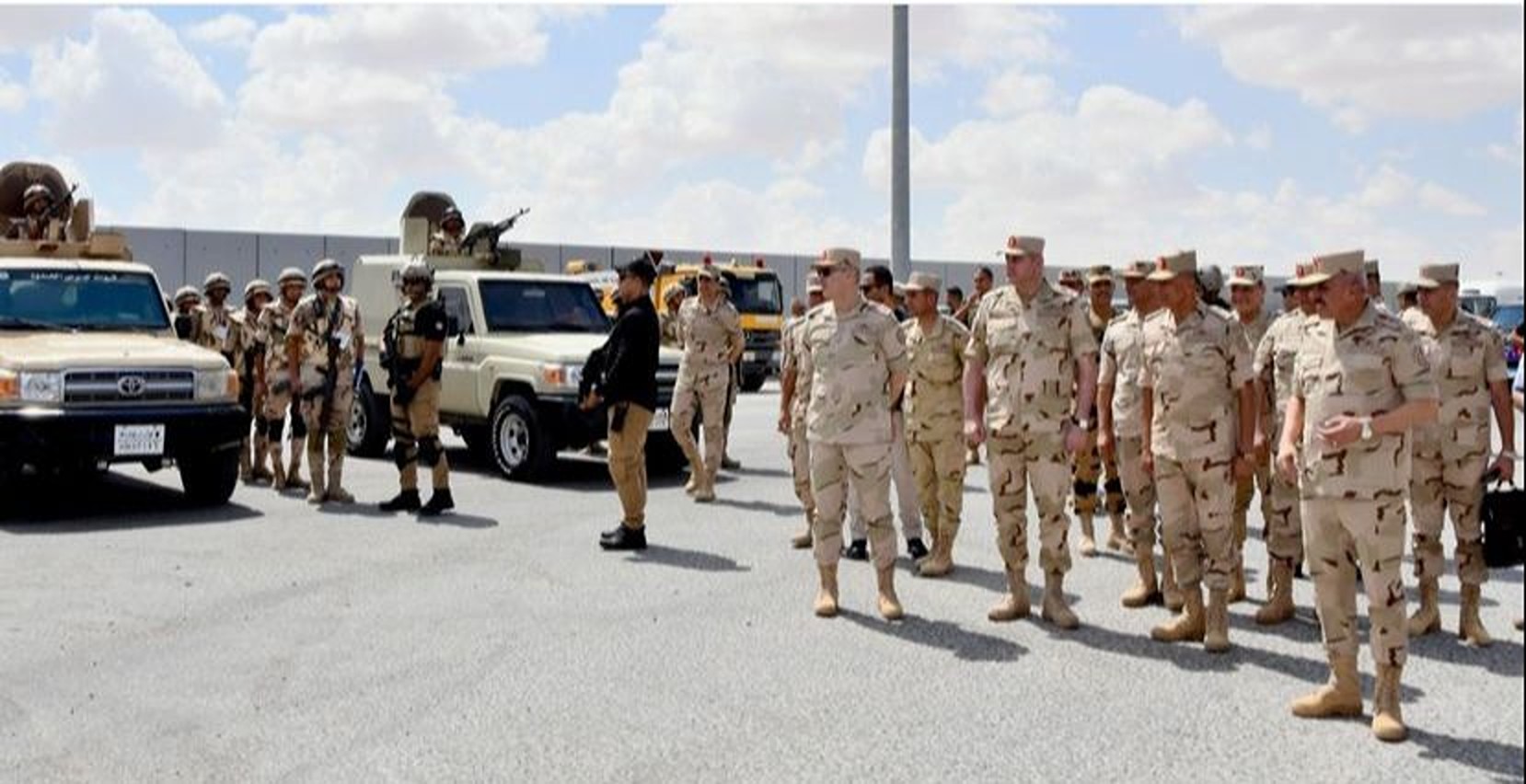Egypt’s army chief of staff, Lieutenant General Ahmed Fathy Khalifa, made an unannounced visit on Thursday, 5 September, to inspect the security situation along the border with the Gaza Strip, according to the army’s spokesperson.
This surprise inspection follows Israeli Prime Minister Benjamin Netanyahu’s recent statement highlighting the Philadelphi Corridor—a narrow strip along the Gaza-Egypt border—as a critical route for Hamas’s rearmament and asserting the need for Israeli control over the area for national security.
The inspection tour began with a visit to the forces stationed at the Rafah crossing. The Chief of Staff of the Armed Forces emphasized that the primary responsibility of the military is to secure the nation’s borders in all strategic directions.
He highlighted that the armed forces are prepared to defend the country across generations. He also reassured that the living and administrative conditions of the personnel are being well-managed.
Egypt’s Ministry of Foreign Affairs condemned on Tuesday recent remarks by Israeli Prime Minister Benjamin Netanyahu, accusing him of trying to distract the Israeli public and obstruct ongoing efforts to secure a ceasefire and hostages exchange in Gaza.
The ministry described Netanyahu’s statements as baseless and inflammatory, and reiterated its firm stance against any Israeli presence in the Philadelphi Corridor as part of a ceasefire agreement.
Earlier on Wednesday, Netanyahu stated that for a permanent ceasefire to be viable, it must ensure that “the Philadelphi Corridor remains secure.”
He emphasized that any proposed solution must demonstrate, “not just in theory or on paper, but in practice, day after day, week after week, month after month,” that it can effectively prevent a recurrence of past issues before it can be considered.
He also reiterated his firm stance that Israel must maintain its troop presence at the corridor for its national security, calling it a “red line.” “People said this would jeopardize the deal,” he said. “I counter that such a deal would jeopardize us.”
He argued that making further concessions after Hamas killed six hostages last week would be “illogical,” “immoral,” and “insane.” “We have red lines,” he insisted. “They haven’t changed, and we will uphold them.”
Over 40,000 Palestinians, many of them women and children, have reportedly been killed since Israel’s war on Gaza began on 7 October, according to the latest data from Reuters. An additional 92,500 people have been injured, with countless others trapped under the rubble of buildings destroyed by Israeli airstrikes.







Comments (0)